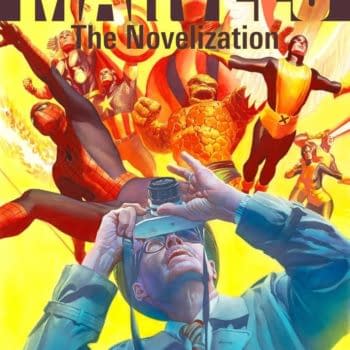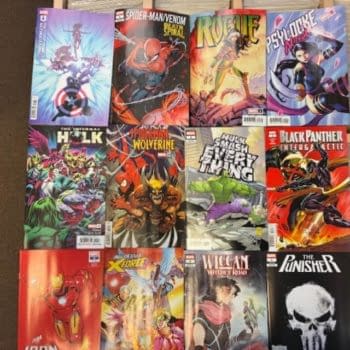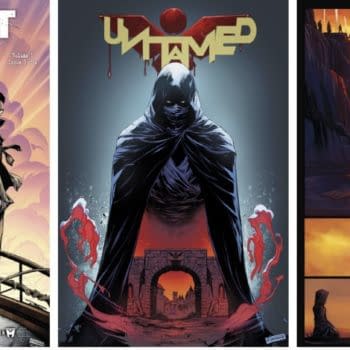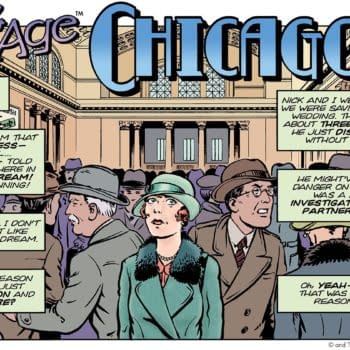Posted in: Comics | Tagged: assassin's creed, Borgias, Comics, Donald McDonald, entertainment, kickstarter, Machiavelli, tupac shakur
What Do You Think When You Hear The Name Machiavelli?
Don MacDonald writes for Bleeding Cool:

What do you think about when you hear the name Machiavelli?
Do you think of the Borgias, Assassin's Creed, or Tupac Shakur? Maybe more likely, you think about a figure of base cunning and malevolence. The ends justifying the means. That's what it is isn't it? The definition of the word. We call our most amoral politicians Machiavellian, especially if they are particularly plotting or cunning. But how has this notion endured the five hundred years since Machiavelli was alive?
In 2012, I completed a graphic novel which I researched, wrote, drew, and published online, in which I hoped to go beyond this caricature. That the idea we have in the popular culture of Machiavelli as a kind of devil was something I wanted to fix.
I like drawing on paper, working in inks and watercolors. So I based the look of Machiavelli on the kind of artwork that got me fired up: the pen and ink works of 16th and 17th century artists. Except for the lettering, everything is done by hand. I wanted to make art that evoked his time, that was suited to the time and place of Machiavelli, but also was suited to me. I like working with paper, working with paints, inks, low tech. And so, I've been a bit of an outsider as well. My choices of materials and subject matter place me outside the mainstream in the age of Photoshopped comics. But I chose to distribute the work electronically, to publish on the web and publicize through Twitter and Facebook, and to raise funds for a print version of the book through Kickstarter. So the more low tech my artwork becomes, the more I've relied on technological solutions for getting it in front of people. The more I look into ebook and tablet formats—it's very exciting!—I think to myself "You know what's going to look awesome on this? Hand drawn and lettered artwork"

Machiavelli was more statesman than schemer, more philosopher than plotter. He was loyal, he didn't backstab anyone. It is a great irony that Machiavelli's great misfortune—his banishment—became a stroke of luck for world literature. Had Machiavelli been more Machiavellian in his own career, had he betrayed his government and gone over to the Medici early he might have kept his position in government and the Prince and the Discourses would likely never had been written. That historical irony drew me to Machiavelli's story, not to mention that his rise and fall and eventual redemption in literature makes for a great narrative.
He never told us that cruelty and duplicity are virtues, or even the best means to our ends. He tells us not to be cruel, so that we are not hated. He tells us above all we should inspire a sense of greatness and goodness with our actions, and that working together we as a people are wiser and make better decisions than any monarch. Demand respect, do not be over-cautious: go and do what needs doing because fortune will favor you for it, even though it may not be in the way you anticipated.
Machiavelli is criticized for describing the harsh realities of rulership, but you will make better decisions if you see things as they are and not as you wish they were.
Links:
Kickstarter: Machiavelli, a Graphic Novel: https://www.kickstarter.com/projects/325728729/machiavelli-a-graphic-novel
TEDx Boston: http://tedxtalks.ted.com/video/TEDxBoston-Don-MacDonald-Learni;search%3Atag%3A%22tedxboston%22
Web site: http://donmacdonald.com
Twitter: https://twitter.com/don_macdonald














